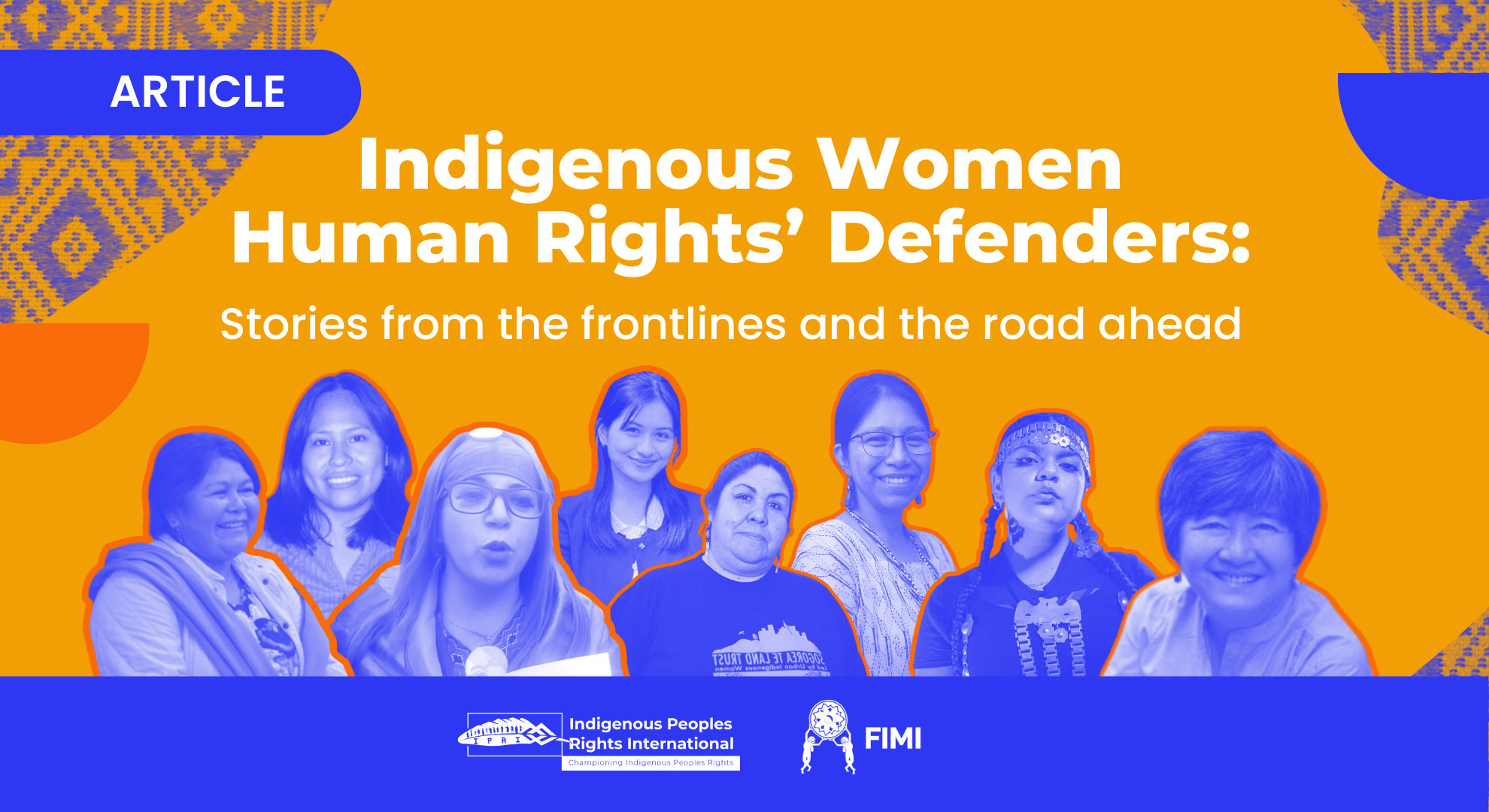
March 7, 2023. – As part of the worldwide activities for International Women’s Day 2023, The Indigenous Peoples Rights International (IPRI) and the International Indigenous Women’s Forum (FIMI) organized a webinar titled “Indigenous Women Rights Defenders: Stories from the Front Line and the Road Still Ahead” as a way to recognize their achievements and struggles in the defence of their individual and collective rights.
According to the “Decade of Resistance” report by Global Witness, 40% of the rights defenders assassinated since 2012 were Indigenous People. Furthermore, one in ten were women. The murdered Indigenous Women were protecting their identity, their language, the territory or the natural resources that give life to their peoples.
During the opening of the seminar, Teresa Zapeta Mendoza, Maya K’iche from Guatemala and Executive Director of FIMI, explained that Indigenous Women defenders have built networks of support in order to defend against persecution, physical, psychological and sexual harm, and murder. “We have organized this meeting with the aim of listening to the problems our indigenous defenders sisters from around the world are facing, through their experiences and their voices. We also hope to hear about stories of change, best practices, and all those contributions that often go by unseen,” she explained.
Cristina Coc, leader of the Maya Q’eqchi people in southern Belize and IPRI’s Global Advocacy Coordinator, specified that the organizing parties of the webinar were seeking to “raise awareness of the achievements and difficulties that Indigenous Women have faced in their defence of environmental rights”. She highlighted some of the fundamental elements of CEDAW’s General Recommendation 39 (RG39), which is a key instrument for the protection of Indigenous Girls and Women who defend their rights around the world.
The event was attended by Zahia Bachir Raab, from the Amazigh people in Algeria, who told the story of how she had been persecuted and imprisoned for her work in favour of protecting the environment and raising awareness among the inhabitants of the village of Iguarsafene; Jean Roch, from the Lakota tribe of South Dakota, United States, who is a survivor of the 1975 persecution against Sioux natives and who denounced the murders that keep happening with impunity and the fabrication of charges against Indigenous Peoples; Anabela Carlon, lawyer and defender of the Yaqui people, in Mexico, who was kidnapped and saw her companions imprisoned, murdered and disappeared for their work in defence of the territory, coveted by transnational companies, governments and criminal groups; Kara Lenina Taggaoa, from the Miruscaliga community in the Philippines, national spokesperson for the League of Filipino Students, who suffered constant attacks and saw her parents, also human rights defenders, get arrested; and MC Millaray, a young activist and rapper from the Mapuche people in Chile, who uses her music to channel five centuries of indigenous struggle in her country and to recover the use of her language.
“The participation of the women defenders at the event shows that the rights of Indigenous Women defenders are constantly violated. They are systematically threatened, criminalized and murdered, and because of the institutional discrimination that prevails in their States, it is difficult for them to find access to justice,” said Joan Carling, Kankana-ey Igorot activist from the Philippines and Executive Director of IPRI. “GR39 is a binding international instrument that recognizes these and other risks that women face when defending their individual and collective rights.”
As stressed by Joan Carling, the Recommendation obliges the States to give Indigenous Women recognition and protection for their defence work. “The authorities must ensure their access to security and justice so that they do not face reprisals for protecting their territories, supporting these efforts through appropriate public policies, programs and funds allocation.” She also specified that “there is a global crisis of violence against Indigenous Women defenders that must be dealt with urgently and in solidarity”.
Concluding the event, Teresa Zapeta stressed that “when we speak, we do not speak only for ourselves. We speak the voice of our ancestors, we speak the voice of our lineage.” On the role of our elders, she pointed out: “All the experiences reported on this panel reveal a common life path in which our mothers and other women served as models and promoters of our defence and leadership processes.” She claimed that building solidarity and support networks between indigenous and non-indigenous allies is a task we must all take part in in this era of new colonialisms. Lastly, she pointed out: “Defending our rights and territories is the basis for the spiritual and physical healing of the Native Peoples of all regions.”

%2020.49.20.png)
